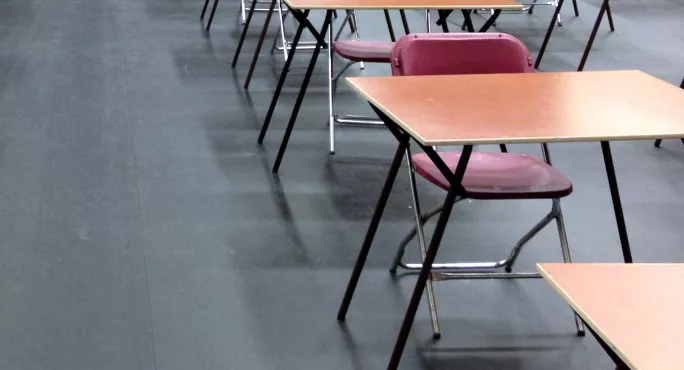As it stands, “exam boards will be asking teachers, who know their students well, to submit their judgement about the grade that they believe the student would have received if exams had gone ahead”.
I had dreaded the announcement since learning that the summer exams were cancelled. Even now, weeks on from the news, the responsibility of being the person who influences whether my adult maths GCSE students will obtain the potentially life-changing grade 4 is constantly niggling at the back of my mind. Even in these exceptional times, where worries are plenty.
Coronavirus: How to teach GCSE resit students remotely
Opinion: Why everyone in college is accountable for GCSE resits
GCSEs: Students to receive ‘calculated’ grades
I am sure every teacher facing these decisions feels the same, whoever they teach and whatever their subject. As a teacher in an adult education college, these are my specific concerns. Maybe by the time I have finished writing I’ll have woken up to find that this was all a bad dream, my own children will be back at school and I can crack on with photocopying revision booklets?
Coronavirus: How can I predict GCSE resit students’ grades?
- Adult learners are on a steep learning curve. They have eight months to complete a GCSE course. When we hold mocks in February we are only slightly over halfway. It is not uncommon for a grade 3 or even a grade 2 in the mock to turn into a better grade in the summer. Equally, it is certainly not guaranteed either. While that does not stop us doing mocks and recording the data, should it limit my confidence in using it to predict?
- By their nature, adult classes contain a lot of ‘“borderline” students. Students who missed out at school and only have months to change that. On the other hand, they usually work extremely hard to change that. All my students have demonstrated that they can work at grade 4 and that they have the potential to achieve it. I also know that they wouldn’t all get a grade 4 in the exam. If only.
- Our lessons are once a week. In that lesson I have to cover a large topic, ascertaining prior knowledge, tackling misconceptions, ensuring every student understands, providing a chance to embed, and showing what exam questions might look like. The next week we move on. The pace is fast. Which is not to say we don’t interleave or use retrieval practice. We definitely do, but we do not have time to revisit topics in a way that students do throughout key stage 3 and 4. Can I be confident that knowledge will be retained and demonstrated in the exam in the same way?
- In adult education, we teach students for closer to five months than five years, so we have significantly less data. We have previous exam grades, initial assessments and ongoing assessment, but we will never match the data held by schools.
So, will I feel confident providing predictions? In our college, we have systems in place to ensure our assessment is robust. I am grateful for them. But I have been teaching for 25 years and in that time I have had surprises with each cohort I have taught. We must accept that this will not be a perfect replication of the exams. Evidence shows that teacher assessment is open to being flawed, however unintentionally, and this is concerning.
I just hope Ofqual supports all teachers, whatever their setting, in making the most difficult of decisions.
Rebecca Atherfold is a full-time maths tutor teaching functional skills and GCSE at the Learning and Enterprise College Bexley





